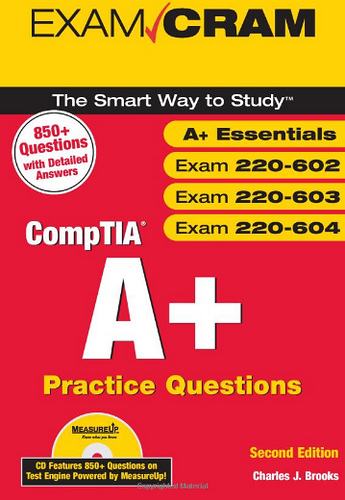When you have the opportunity to begin therapy with a counsellor, the initial meeting will bring up anxieties for many therapy-newbies. Even experienced patients can get the heeby-jeebies before the assessment, and whilst this is probably the same social anxieties as you might experience when meeting with anyone new, the counselling assessment may be just that little more distressing.
It’s untrue that counsellors, psychotherapist and psychiatrist can read into your very soul! At the same time, it’s particularly true that many experienced counsellors do gain the experience of being able to understand where a new client is coming from during the client’s story. Counsellors call it empathy, and the more ethical ones of us counsellors use it to try and help you understand yourself. But, this isn’t going to be an article on how kind and amazingly helpful we, as therapists, are!
Because of recent reports of counsellor/client imbalance (who knows – maybe it’s always been so) I’d like to give you three tips that may help you face your new therapist for the first time. I’d like you to feel a little more empowered than you may normally do. Introducing my A, B, C of working with a new Counsellor.
A is for Authenticity
[dropcap style=”font-size:52pt;color:black”]A[/dropcap] is for Authenticity.
During the first meeting with a counsellor, you’ll probably be asked a series of questions. This isn’t always true, though. Some therapists pride themselves in being able to work therapeutically without asking any questions at all. Amazing (even frustrating) as thatm ight be, we’ll save that discussion for another time.
So – “A” is for authenticity – meaning: be true as yourself to yourself as you can be in any of your replies to the counsellor. The counsellor isn’t trying to trap you or catch you out. The therapist is trying to learn about you and your story, primarily so that the therapist can judge if they are the right person to be working with you. If you don’t know an answer, say so. If you’d rather not answer a question, you can say you’d prefer not to answer that. The counsellor may be curious (and hopefully respectful of your reply too) and may ask you to say a little more. Again, if you’d prefer not to go into a subject area you can decline to do so.
An assessment should be a mutual one – you’re assessing the therapist too. Being authentic means that you will get a better experience from a counsellor who is, too, trying to be as authentic with you as possible.
B is for Behaviour
[dropcap style=”font-size:52pt;color:black”]B[/dropcap] is for Behaviour.
Don’t change your usual behaviour. Or, if for reasons of social niceties you feel you do have to change your behaviour, share with the counsellor your change in behaviour and try to describe how you might normally behave.
Socially, we humans can have a whole series of different behaviours that we bring out depending on what situation we’re in. Sometimes we’re the life of the party. Sometimes we’re the businessman that invites new business orders. Sometimes we’re the dad picking up his kid from school surrounded by female-conversation we feel awkward to join in with. But meeting with a counsellor is about you, the inner person, and behaving just as your true, authentic self is best.
If your behaviour is effecting your life, and it’s something you want to change as part of the therapy, then it’s useful to discuss this with your counsellor too – your counsellor may need to learn about those behaviours … and you’re the tutor
C is for Challenging the Counsellor
[dropcap style=”font-size:52pt;color:black”]C[/dropcap] is for Challenging the Counsellor.
You’re meeting with a counsellor, presumably, to find to help. If the counsellor is asking questions that make you uncomfortable, or the counsellor says something that disturbs you, challenge the counsellor. You don’t have to feel that you must comply with the counsellor because you’re feeling forced to do so. If you’re not receiving help, you have the right to point this out.
Challenging doesn’t have to be confrontational or impolite. It can be a simple way to show that you don’t agree with the counsellor, or that you would like the counsellor to be somewhat more clear about what he or she has just said. if we remember that counselling is a partnership there are a vast number of studies that it is the relationship between counsellor and client that makes the difference – not what the counsellor does to you.
So, if you feel uncomfortable about what’s been said to you, challenge the counsellor to explain more.
Addressing Client/Counsellor Imbalance.
This article has had a hidden agenda – it’s been about addressing a reported-increase in the imbalanced between the some counsellor/client relationships.
At the present time, Increased Access to Psychological Therapies (IAPT) at the NHS has introduced an increase of newly trained CBT counsellors. Whilst this is a good thing, unfortunately the practice of IAPT low-level CBT intervention offered by newly-qualified IAPT therapists has, somehow, embraced the medical approach to therapy. Doctors practice the role: “there’s something wrong with you, and I have to cure you.” This is leading to an unfortunate counselling-practice of “I am the counsellor, so I have to cure you.”
Studies show that counselling and psychological therapies are effective because of the relationship between the therapist and client. The effectiveness is not because of being given instructions-to-follow in order to be cured by the counsellor.
This is not an attack on CBT. This therapist incorporates CBT in his private practice. I incorporate CBT from a position of collaboration and empathy between myself and my client – we’re in this shit together. In my professional opinion, the client experiencing a newly qualified therapist’s sometimes-dominant instruction is counter-productive. You cannot be cured of anything by being told what to do (except, perhaps, allowing for a sadistic/masochistic relationship being played out between the counsellor and client – a discussion for another articl).
This article offers you, the client, the very legitimate and very real approach that you’re a fellow in the therapy. You are not a subordinate, and I hope you won’t feel like you are when you next go to meet with a new counsellor.
A, B, C and meet your counsellor with the expectation of equality & collaboration.
Enjoy your first meeting with your new counsellor!



